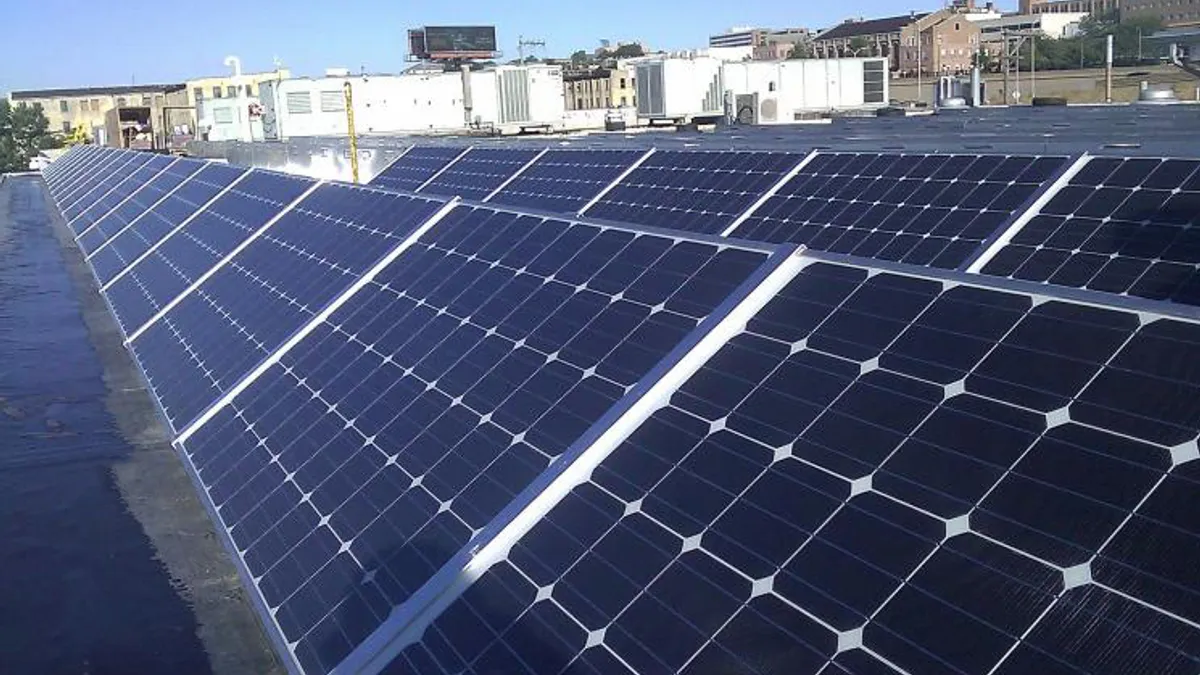Dive Brief:
- It's unclear what impact the election will have on Maine's solar debate, but the Portland Press Herald reports advocates remain optimistic despite losing ground in the state's House of Representatives, but net metering benefits are likely to be cut.
- While the House is still controlled by Democrats, earlier this year, they fell two votes short of overturning a veto from Gov. Paul LePage (R) on a bill that would have replaced retail rate net metering for rooftop solar customers with a market-based incentive program.
- The Maine Public Utilities Commission is considering a measure that would phase out retail rate net metering over the next 15 years, grandfathering existing systems for that full period and new installations for just 10 years.
Dive Insight:
Maine is in the midst of a broad debate over solar policy and net metering, and the election just a few weeks ago has brought little clarity to the forecast.
The PUC is considering a new remuneration level that would be about half the retail rate, and earlier this year Democrats failed to overturn LePage's veto of a broadly-supported market-based program. And now, with Republicans picking up seats, that route may be cut off for clean energy advocates.
The incentive plan, ordered by state legislators last year over another LePage veto, was designed to grow Maine’s current 18 MW installed solar capacity to 196 MW by 2021. It had support from the state's investor-owned utilities along with a group of solar companies and environmental groups.
LePage’s veto letter said the bill would increase costs for Maine non-solar owners. The governor is a vocal critic of the clean energy credits, and previously pushed to shorten grandfathering periods for rooftop solar.
An October PUC hearing on net metering changes drew a large crowd. Commission Harry Lanphear said regulators are "not proposing to eliminate all compensation for net metering. We are proposing a reduction that we do want feedback on and that’s why we are here today. We really want to listen to the public and we want to do the right thing that’s the most fair for all ratepayers.”















